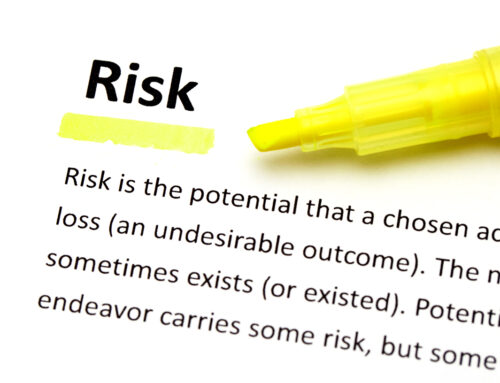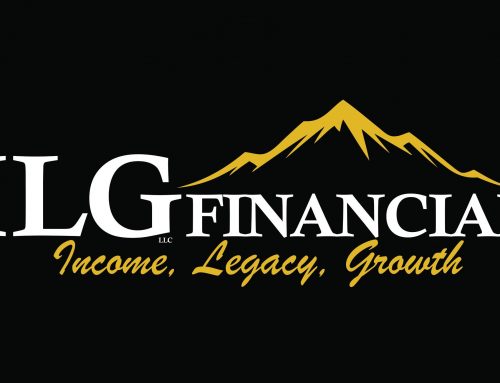 Do you have a false sense of security that the market is going to offer smooth sailing? Think back on the not-too-distant past to the dot-com bubble, the Great Recession, and the 2020 COVID-19 pandemic. It’s choppy waters out there!
Do you have a false sense of security that the market is going to offer smooth sailing? Think back on the not-too-distant past to the dot-com bubble, the Great Recession, and the 2020 COVID-19 pandemic. It’s choppy waters out there!
ARE YOU:
- Taking too much risk? Investors taking on too much risk—not wanting to miss out on the market boom—often see their portfolios take a severe beating. If all investments respond to market declines similarly, you may increase the risk of losing your money. The objective is to take on the amount of risk that aligns you with your long-term goals.
- Taking too little risk? While minimal risk can feel like a safe move, you could miss significant market rallies. For many investors, hunkering down only in safe-haven investments—ones that retain value during market turbulence—is a luxury but not realistic. With inflation eating away at cash every year, most investors need at least some growth-oriented investments.
DO YOU:
- Try to time the market? When markets rally or pull back, it can be tempting to seek opportunities to sell high and buy low. The problem is that investors usually guess wrong. A better approach may be making minor adjustments to help you stay the course.
- Make emotional decisions? Past market crash experiences have made investors more susceptible to emotional investment decisions, which manifests as risk aversion. Fear can cause us to abandon an investment strategy when the outcome isn’t what we want. Greed can cause us to chase investment fads and take on too much risk.
HAVE YOU:
- Failed to diversify? By diversifying, you avoid investing aggressively into one sector. If your investments weigh heavy in one area during a market rise or fall, the dynamics could decimate your portfolio. Create a mix within each asset class to help overcome risk, opting for a good mix of small-cap, large-cap, international, and sector-diverse equities.
- Ignored the impact of taxes? Remember that the federal government taxes investment income as capital gains. Thus, it’s critical to efficiently structure your investments to help minimize how much money you could lose to taxes. Tax optimization is an integral part of a forward-looking strategy that also assists with retirement and legacy planning.







 Amy Anderson joined the ILG Financial team in 2023 as the client relations coordinator. Her responsibilities include scheduling of appointments, annual check-up notifications, and annuity and required minimum distribution assistance. She is a graduate of Harding University with a degree in Computer Information Systems. Amy and her husband have two children and she enjoys reading, crocheting, music and spending time with her family.
Amy Anderson joined the ILG Financial team in 2023 as the client relations coordinator. Her responsibilities include scheduling of appointments, annual check-up notifications, and annuity and required minimum distribution assistance. She is a graduate of Harding University with a degree in Computer Information Systems. Amy and her husband have two children and she enjoys reading, crocheting, music and spending time with her family. Chase Lopez joined the ILG Financial team in 2020 as an advisor. Chase is a 2016 James Madison University graduate with a degree in management. Chase has been trained under the tutelage of Dave Lopez, who is not only the founder and managing member of ILG Financial, but also is Chase’s uncle and godfather. He also enjoys working alongside his cousin, Megan, who is Dave’s daughter. Chase, as a fiduciary, believes in putting his clients interests first, and building out plans for his clients where they can have a happy and fruitful retirement. He married his beautiful wife in February 2022 and both use most of their free time chasing around their little pup, Aurora.
Chase Lopez joined the ILG Financial team in 2020 as an advisor. Chase is a 2016 James Madison University graduate with a degree in management. Chase has been trained under the tutelage of Dave Lopez, who is not only the founder and managing member of ILG Financial, but also is Chase’s uncle and godfather. He also enjoys working alongside his cousin, Megan, who is Dave’s daughter. Chase, as a fiduciary, believes in putting his clients interests first, and building out plans for his clients where they can have a happy and fruitful retirement. He married his beautiful wife in February 2022 and both use most of their free time chasing around their little pup, Aurora. Jessica Carson joined the ILG Financial team in 2018 as an agent. Jessica and her husband have four children, two dogs, 3 barn cats, 5 chickens, and three parakeets. She indeed loves her children and pets! When not at work, Jessica enjoys playing the piano and cello as well as traveling and spending time outside with her family, hiking, fishing, and boating.
Jessica Carson joined the ILG Financial team in 2018 as an agent. Jessica and her husband have four children, two dogs, 3 barn cats, 5 chickens, and three parakeets. She indeed loves her children and pets! When not at work, Jessica enjoys playing the piano and cello as well as traveling and spending time outside with her family, hiking, fishing, and boating. Terri Center joined the ILG Financial team in 2019 as client services manager. She handles client records, application processing, and gathering information to provide a professional and friendly experience with all of our clients. Terri is a graduate of Oakland University. She is married and has two children. She enjoys hiking, family time, and puzzle challenging video games. She also likes to share her creativity in her canvas paintings and sewing projects.
Terri Center joined the ILG Financial team in 2019 as client services manager. She handles client records, application processing, and gathering information to provide a professional and friendly experience with all of our clients. Terri is a graduate of Oakland University. She is married and has two children. She enjoys hiking, family time, and puzzle challenging video games. She also likes to share her creativity in her canvas paintings and sewing projects. Megan Jones joined the ILG Financial team in 2020 as marketing director. Megan and her husband live in Fredericksburg, VA with their German Short Haired Pointer, Gus. Megan is a graduate of Longwood University and holds a degree in communications. Megan is the oldest of Dave Lopez’s three children and not only enjoys working alongside her father, but also with her cousin, Chase, who joined the ILG Financial team in 2020 as an advisor. When not at work, Megan enjoys sitting on the back porch with family and friends enjoying food and music.
Megan Jones joined the ILG Financial team in 2020 as marketing director. Megan and her husband live in Fredericksburg, VA with their German Short Haired Pointer, Gus. Megan is a graduate of Longwood University and holds a degree in communications. Megan is the oldest of Dave Lopez’s three children and not only enjoys working alongside her father, but also with her cousin, Chase, who joined the ILG Financial team in 2020 as an advisor. When not at work, Megan enjoys sitting on the back porch with family and friends enjoying food and music.